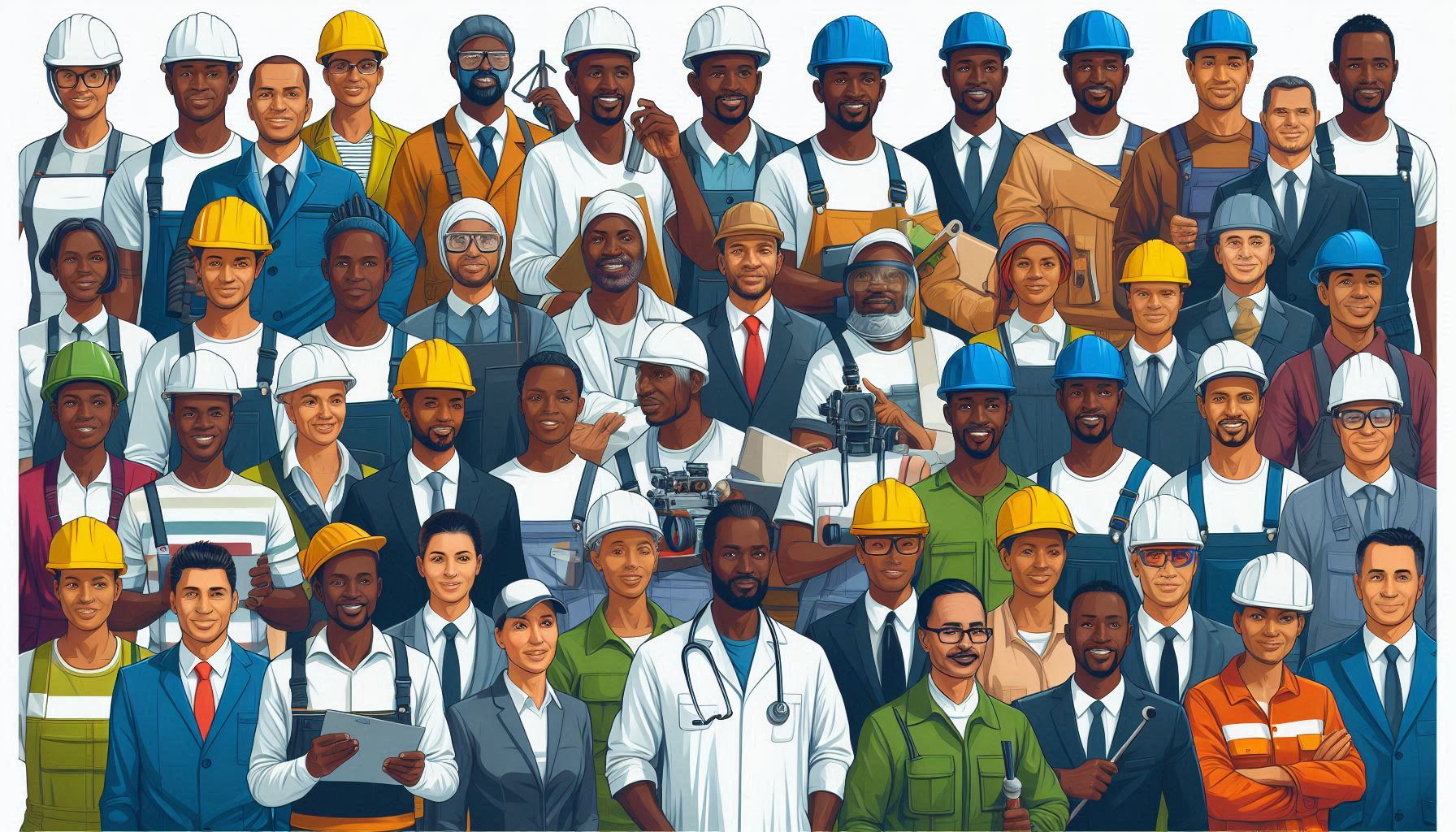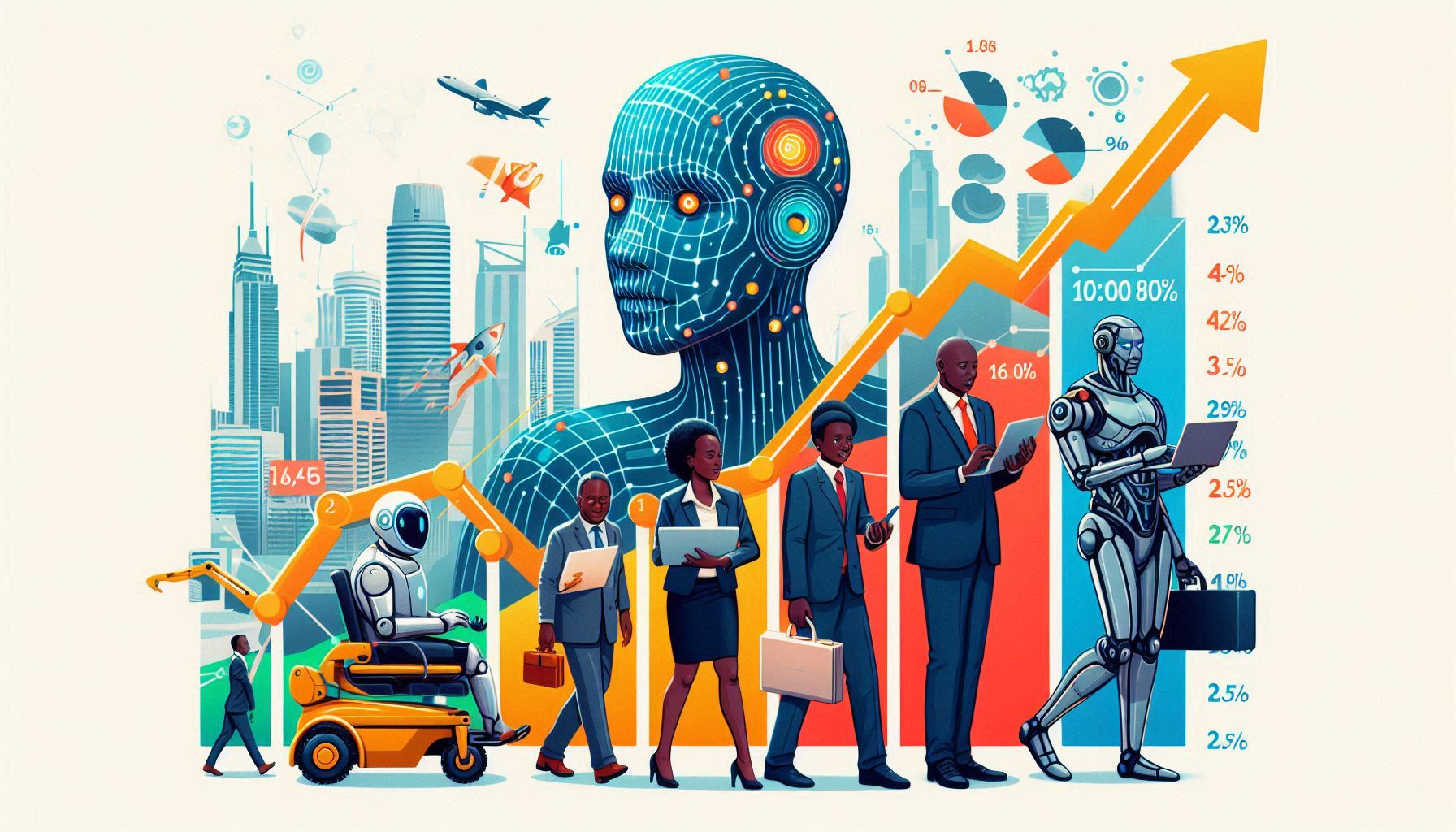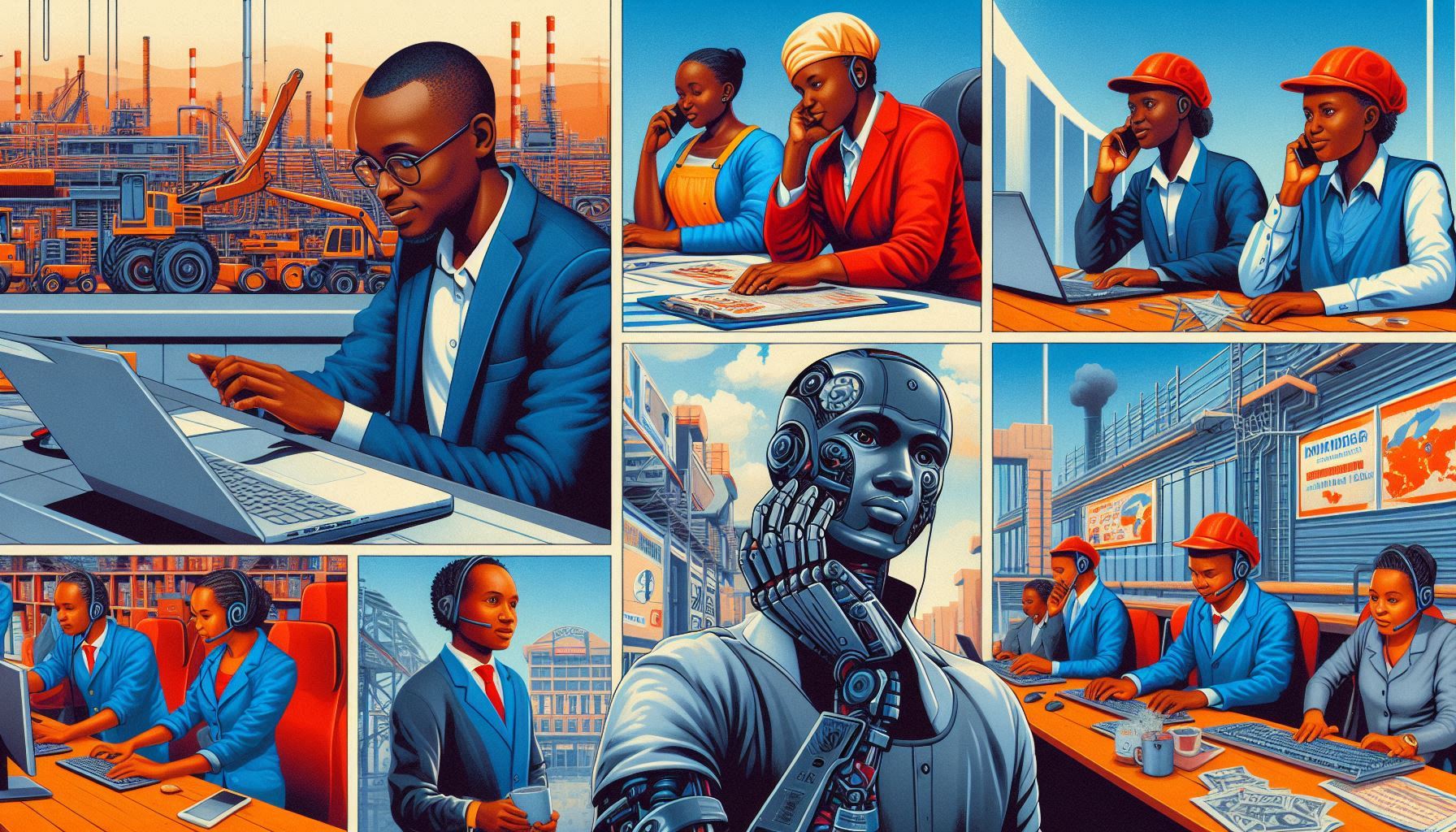
As AI technologies become more sophisticated and accessible, they have the potential to automate many tasks that were once performed by humans. This raises concerns about job displacement and the future of work in Kenya. In this blog post, we'll explore the complex relationship between AI and employment in Kenya, separating fears from opportunities, and providing insights on how individuals and businesses can navigate this evolving landscape.
The Impact of AI on Jobs in Kenya: A Realistic Assessment

It's undeniable that AI will disrupt certain job categories in Kenya. Routine and repetitive tasks, particularly in manufacturing, data entry, and customer service, are most susceptible to automation. While this may lead to job losses in some sectors, it's crucial to remember that AI is also creating new opportunities and transforming the nature of work.
According to a recent report by the World Economic Forum, while AI is expected to displace 75 million jobs globally by 2022, it will also create 133 million new roles. This net positive impact highlights the importance of adapting and upskilling to thrive in the AI era.
Sectors and Jobs at Risk of Automation

In Kenya, certain sectors and job roles are more likely to be impacted by AI automation:
- Manufacturing: Assembly line workers, quality control inspectors, and other roles involving repetitive tasks are at risk of being replaced by robots and AI-powered systems.
- Transportation and Logistics: Self-driving vehicles and drones could disrupt the transportation and logistics sector, impacting drivers and delivery personnel.
- Customer Service: AI-powered chatbots and virtual assistants are increasingly handling customer inquiries, potentially reducing the need for human customer service representatives.
- Data Entry and Processing: AI's ability to process and analyze large volumes of data quickly and accurately could lead to job losses in data entry and processing roles.
Emerging Opportunities in the AI Era

While AI may displace some jobs, it's also creating new opportunities and transforming existing roles:
- Data Science and Machine Learning: The growing demand for AI expertise is creating new jobs for data scientists, machine learning engineers, and AI researchers.
- AI Ethics and Governance: As AI becomes more pervasive, there is a growing need for professionals who can ensure its ethical and responsible use.
- Software Development and Engineering: Developing and maintaining AI systems requires skilled software developers and engineers.
- Creative Industries: AI is being used to generate new forms of art, music, and media, creating opportunities for artists, designers, and content creators.
- Healthcare: AI is opening up new possibilities in healthcare, such as personalized medicine and AI-assisted diagnostics, creating demand for specialized healthcare professionals.
Navigating the AI-Driven Future of Work

To thrive in an AI-driven economy, individuals and businesses in Kenya need to adapt and embrace new skills and ways of working:
-
Individuals:
- Embrace lifelong learning: Continuously upskill and reskill to stay ahead of the curve.
- Develop soft skills: Focus on creativity, critical thinking, and problem-solving, which are harder for AI to replicate.
- Embrace AI tools: Learn how to use AI tools to enhance your productivity and efficiency.
-
Businesses:
- Invest in AI technologies: Identify areas where AI can add value and invest in the necessary tools and infrastructure.
-
- Upskill your workforce: Provide training and development opportunities to help your employees adapt to new AI-driven roles.
- Foster a culture of innovation: Encourage experimentation and collaboration to leverage AI's full potential.
Conclusion
AI's impact on the job market in Kenya is undeniable, but it's not a cause for despair. By embracing AI and focusing on upskilling and innovation, individuals and businesses can navigate the changing landscape and create a brighter future for all.
Espiknow AI is committed to empowering individuals and businesses in Kenya to thrive in the AI era. Explore our range of AI-powered solutions and training programs to equip yourself with the skills and tools needed to succeed in the future of work. Contact us today to learn more.
Remember, AI is not a threat, but an opportunity. By working together, we can ensure that AI benefits all members of society and contributes to a more prosperous and equitable Kenya.

